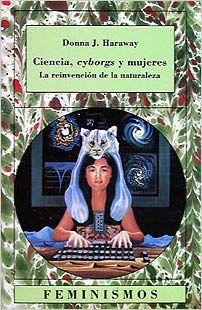

Cite as:
Torres, César. 2019. "Bodies and Emotions in Biomedical and Sexuality Fieldwork with HIV." In Methodological Interruptions Across the Field and Archive: Doing STS in Mexico, created by Arturo Vallejo. In Innovating STS Digital Exhibit, curated by Aalok Khandekar and Kim Fortun. Society for Social Studies of Science. August.
https://stsinfrastructures.org/content/approaching-biomedicine-sexuality...
Interview: Changing Methodological Approach
Medicine Shortage and Budget Cuts
Biomedicine, Vulnerability, Genderand Body in Serodiscordant Erotic-Affective Bonds in Mexico City
Clínica Condesa, La Condesa Neighborhood
New Clínica Condesa @ Iztapalapa
The Health Coordinator Responds to my Request to do Research at a Mexican Health Institute
Throughout more than 6 years, I performed an ethnography about heterosexual and homosexual serodiscordant experiences (couples where one member lives with and the other does not) in Mexico City. A crucial element for my research was related to the suitable methodological strategies to obtain the testimonies of people affected by both HIV/AIDS and serodiscordancy. Since HIV/AIDS has been highly linked to stigma and discrimination, several NGO´s and people in serodiscordant couples questioned my personal reason to research their lives. They also demanded me clear statements about my implications to HIV/AIDS. They wanted to know what political and social commitments I had with these topics. This represented a very relevant methodological interruption in my fieldwork and research practices that obliged me to reflexively analyze how my approach methodological strategies were, as well as an important self-confrontation about the place my informants take in my research. To solve this huge dilemma, I attended Clínica Condesa, a renowned HIV/AIDS attention Clinique in Mexico City with a new methodological strategy that took into account feminist epistemological frameworks, trough situated knowledge (in the way Donna Haraway proposed in 1995) to co-produce the ethnographic knowledge with my interlocutors.
The feminist epistemological approach I resorted to let me re-position myself in the fieldwork as another subject that has been shaped as a sexual risk subject for my homoerotic experiences. Re-direct my research from this point of view contributed to work in a feminist performative ethnography that took as starting point the affective encounters with more people to build my research and to re-construct, in a collective way, the testimonies of HIV and serodiscordant experiences in Mexico City.
Haraway, Donna. 1995. Ciencia, cyborgs y mujeres. La reinvención de la naturaleza. Madrid: Ediciones Cátedra.

All Innovating STS exhibits are oriented by nine shared questions in order to generate comparative insight. These are:
ARTICULATION: What STS innovations (of theory, methodology, pedagogy...Read more
Furthering its theme, Innovations, Interruptions, Regenerations , the 2019 annual 4S meeting in New Orleans will include a special exhibit, Innovating STS , that showcases innovations ...Read more
In an interview with a gay-male couple, one of my interlocutors told me:
INFORMANT: I did not clearly know before this interview what a serodiscordant couple implies. Labels are tough. Besides being gay, now you have to deal with the stigma associated both to homosexuality and HIV. Even...Read more
With the arrival of the new federal government in December 2018, controversies about health access became salient. Regarding HIV/AIDS, by February 2019, the antiretroviral drugs shortage was an important item on the agenda. Social HIV activists voiced their hesitation about the new government's commitment to the HIV/AIDS epidemic, since the warranty of antiretrovirals universal supply, gained in Mexico in 2003, was at risk. As the first 5 months of this year passed by, demonstrations about the lack of these drugs in healthcare clinics became even more persistent. Activists in Mexico City, in particular, but also in the rest of the country, altered about ongoing antiretroviral thefts that might lead to an already growing informal drug market.
https://www.excelsior.com.mx/nacional/robo-y-desabasto-de-antirretrovira...
After trying to get access to a Health Institute in Mexico, a general coordinator said to me in an e-mail:
Despite the fact that we consider your research project to be quite...Read more
After trying to contact women living with HIV, I finally found one that accepted to be interviewed. She was in her mid-twenties and pregnant with her second child. She had been living with HIV for more than 4 years. We shared our mobile phone numbers to agree on the time and place for the...Read more
After a few months of ethnographic fieldwork at Clínica Condesa, I decided to attend several support groups offered there. In one session, after introducing myself to other participants, one young man approached me to ask me some questions about serodiscordant experiences. He was quite insistent...Read more